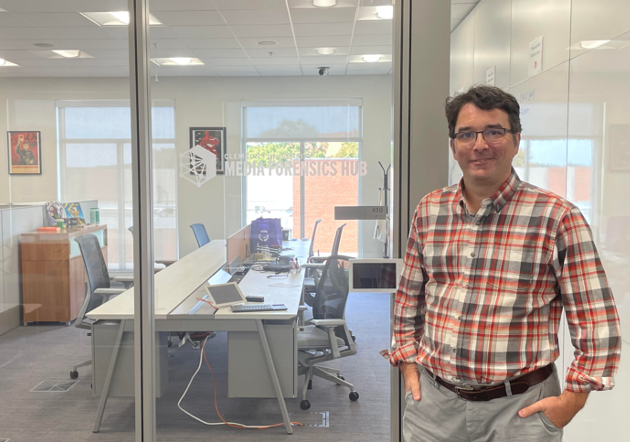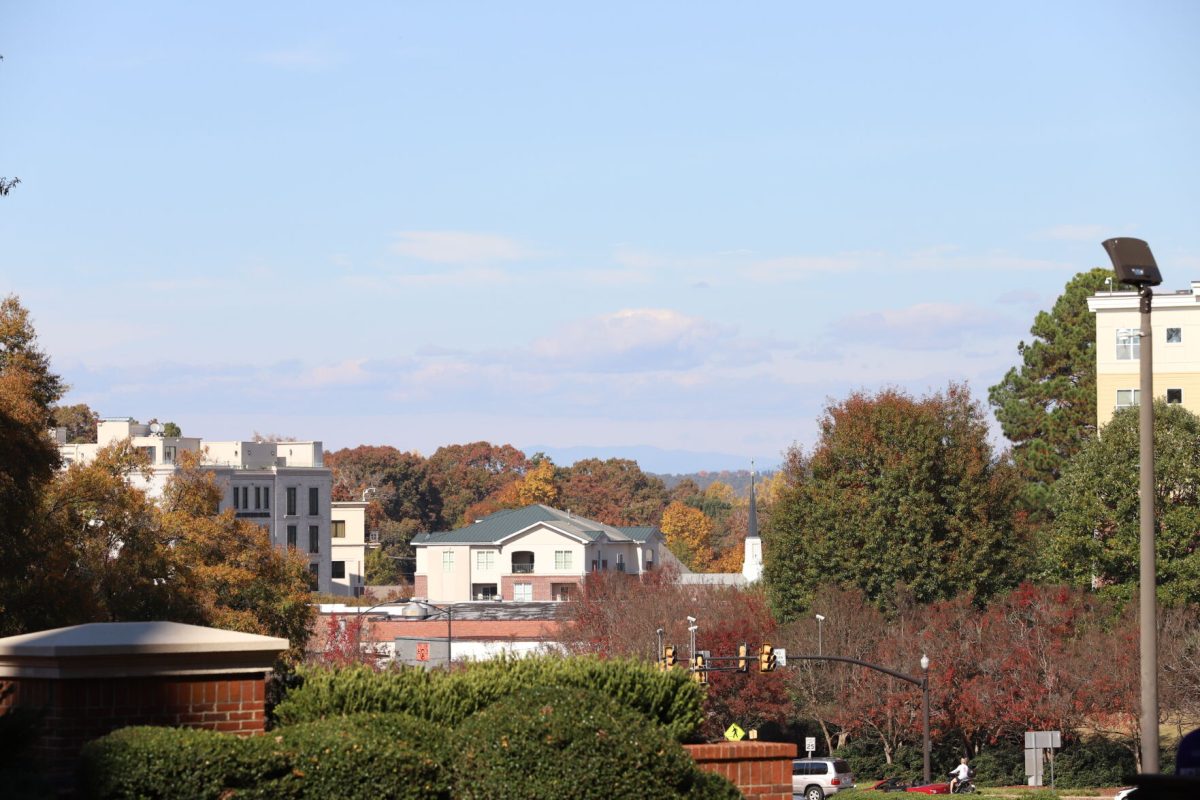As the nation enters a highly anticipated election year, Clemson University is playing a part in ensuring national election security and exposing election interference.
Located in the Watt Family Innovation Center, Clemson’s Media Forensics Hub is co-directed by Darren Linvill, a professor in the Department of Communication, and Patrick Warren, an economics associate professor in the Wilbur O. and Ann Powers College of Business.
The Hub collaborates with government and military intelligence agencies to unravel complex webs of disinformation campaigns, which has earned the University attention in past years.
Linvill and Warren gained national attention during the 2020 presidential election, a time when their research made headlines across several major news outlets.
“It’s all pretty exciting. When I got into academia, I said I didn’t want to just do work that only other academics cared about,” Linvill said. “I always wanted to engage with the public by doing work that matters.”
Ahead of the 2020 presidential election, Linvill and Warren designed an online quiz to help users distinguish between legitimate and disinforming media. Their designed “Spot the Troll” quiz, now widely used to teach disinformation monitoring worldwide, has become a tool in both classrooms and professional settings.
The Hub’s research is conducted in collaboration with Clemson’s Social Media Listening Center. Research involves employing media surveillance software capable of scraping vast amounts of social media posts from various platforms, according to Linvill. One such tool, Sprinklr, utilizes an Application Programming Interface to monitor millions of social media posts and detect foreign disinformation campaigns.
“Upon request, we are able to use this software to assist many faculty, staff, and students across campus with projects they are working on both personally and for school,” Lexi Merriman, the Clemson Social Media Listening Center graduate research assistant, said.
Before the 2020 presidential election, Linvill and the Hub team worked to identify verifiably false activity, specifically focusing their efforts on Russian election interference.
“Russia without question interfered with the 2020 election,” Linvill said. “Russia historically has often talked about things that are important to us. They try to engage us in conversations that are divisive in the United States.”
The Media Forensics Hub’s long-standing relationships with various government agencies led to a formal request for information sent to Clemson University by Jim Jordan, a Republican from Ohio and chairman of the House Judiciary Committee.
“Over the summer, we had to hand all of our emails to Jordan’s office because the U.S. government is concerned about the kind of research that labs like ours are conducting,” Linvill said.
Last fall, the Hub and its team received a $3.8 million grant from the John S. and James L. Knight Foundation, and the grant was matched by Clemson, providing the Hub $7.6 million in funding over the next four years, as well as more money from several other donors.
Linville and Warren said they believe the Knight Foundation’s support will propel Clemson to become a leading disinformation research institution globally, according to a 2022 Clemson News article regarding the grant reward.
“This funding is going to allow us to significantly expand our capacity, to move our work into new disciplines, to build greater expertise here at Clemson and in this field as we teach the next generation of scholars and practitioners studying disinformation,” Linvill said in the article.
This funding has already allowed four new hires in the Media Forensics Hub, which include Jinan Allan, assistant professor of psychology; Sayan Gupta, assistant professor of marketing; Ayse Longmanoku, assistant professor of communication; and Morgan Wack, assistant research professor, according to Clemson News.
While specific details of their ongoing work for 2024 remain under wraps, Linvill shared this insight.
“Right now, we’re looking at new mechanisms that the Russians are using to plant and spread information in the West, not just through social media, but through new media as well.”







